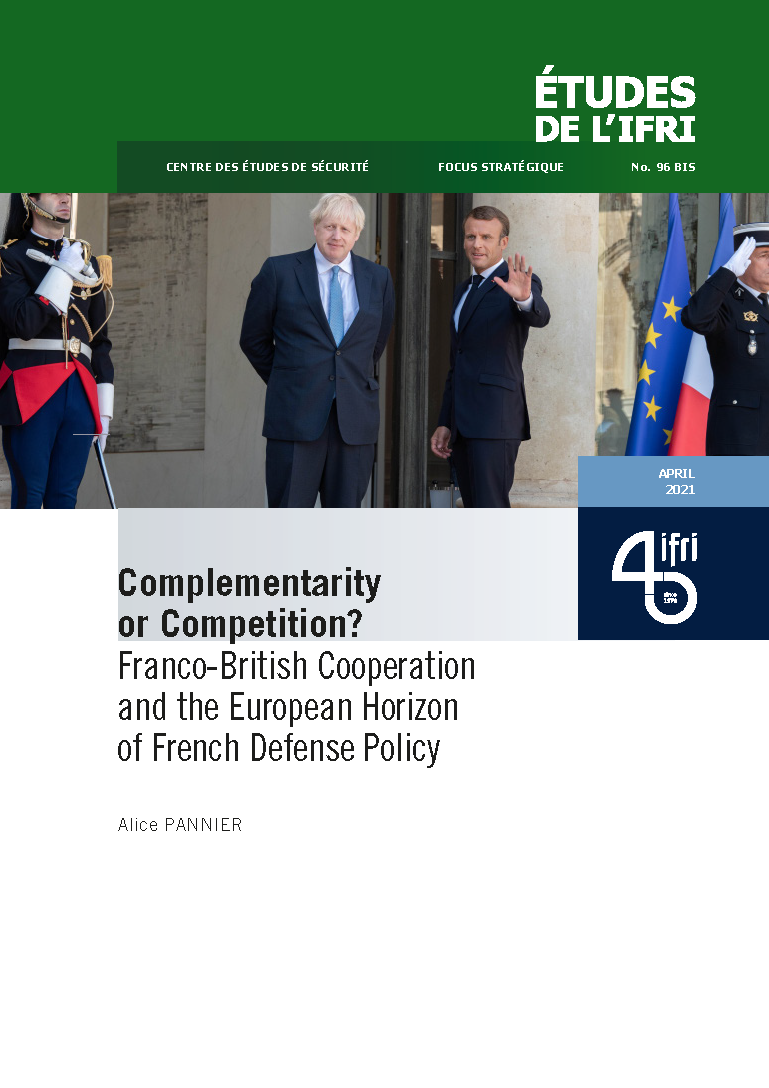Complementarity or Competition? Franco-British Cooperation and the European Horizon of French Defense Policy

What does future hold for the Franco-British defense partnership after Brexit?

France and the United Kingdom have, for long, enjoyed a close defense relationship, thanks in part to their analogous strategic cultures. The 2010 Lancaster House treaties built on this proximity to expand cooperation in the fields of nuclear weapons, force projection, interoperability and industrial integration. In spite of genuine progress in the first years following the treaties, the Franco-British strategic partnership has had to face two pitfalls: on the one hand, Brexit and its political consequences for the United Kingdom, and, on the other hand, President Macron’s attempt to revive European defense and Franco-German cooperation. The tenth anniversary of Lancaster House should offer the opportunity to rethink the convergence between bilateral cooperation and the resolutely European horizon of French defense policy.
This content is available in French: Complémentarité ou concurrence ? La coopération franco-britannique et l'horizon européen de la défense française.
Download the full analysis
This page contains only a summary of our work. If you would like to have access to all the information from our research on the subject, you can download the full version in PDF format.
Complementarity or Competition? Franco-British Cooperation and the European Horizon of French Defense Policy
Related centers and programs
Discover our other research centers and programsFind out more
Discover all our analysesMapping the MilTech War: Eight Lessons from Ukraine’s Battlefield
This report maps out the evolution of key technologies that have emerged or developed in the last 4 years of the war in Ukraine. Its goal is to derive the lessons the North Atlantic Treaty Organization (NATO) could learn to strengthen its defensive capabilities and prepare for modern war, which is large-scale and conventional in nature.
"Iron Swords" A Military Analysis of Israel's War in Gaza
On October 7, 2023, Hamas' attack, dubbed “Al-Aqsa Flood,” caused a major shock and led Israel to launch the longest war in its history. Operation “Iron Swords” was notable for its unprecedented intensity, both in terms of the massive ground forces deployed and the firepower used.
Saudi Arabia’s Nuclear Temptations. Lessons Learned from Regional Instability
Saudi Arabia’s integration in the international arena and regional stability, notably through reducing its dependence on fossil energies, are crucial elements for the success of the Kingdom’s Vision 2030, the Crown Prince’s top priority. However, Mohammed bin Salman’s declarations in 2018 and 2021, indicating that “if Iran develops a nuclear bomb, we will follow suit as soon as possible”, combined with the recent strikes on key Iranian nuclear facilities, do not bode well for the future of the Kingdom, the region and the non-proliferation regime at large.
The Future of Air Superiority. Command of the Air in High Intensity Warfare
Air superiority, understood as control of the air, is a cornerstone of the Western art of warfare. It is a decisive condition, albeit not sufficient by itself, to achieve military victory, as it enables the concentration of air power toward the achievement of wider strategic objectives and protects other components from unbearable attrition levels. It is best achieved through the offensive use of air power in a joint effort to neutralize the enemy’s air power.













